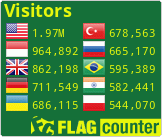Sharia Economic Law in The Islamic Capital Market: Factors Influencing Selection and Decision-Making
DOI:
https://doi.org/10.32332/muamalah.v3i1.8438Keywords:
Islamic Capital Market, Investor Behavior, Investment Decisions, Sharia Economic Law, IndonesiaAbstract
Investment is a compelling topic, especially in the capital market context. In Indonesia, which has the largest Muslim population in the world, the Islamic capital market plays a significant role in economic development under Sharia economic law. However, many Muslim investors still use conventional investment accounts, indicating a gap in understanding and adherence to Sharia principles. This study aims to examine the behavior of Muslim investors in making investment decisions based on Sharia principles and the factors influencing these decisions. This research employs a literature review method, with data from various journals, books, documentation, and internet sources over the past five years. The findings reveal that perceived behavioral control significantly influences investor decision-making, and attitudes toward perceived risk also impact investment decision-making. This study identifies a gap in the literature regarding Muslim investors' understanding of Islamic investment products and contributes new insights by integrating behavioral investment analysis with adherence to Sharia principles. These findings are expected to provide practical recommendations for developing the Islamic capital market in Indonesia and enhance Muslim investors' awareness and understanding of the importance of Sharia-compliant investments under Sharia economic law.
Downloads
References
Downloads
Published
Issue
Section
License
Copyright (c) 2024 Ali Hardana, Dzulasjastri Abdul Razak, Windari Windari, Halima Tussadiah, Elga Nasution

This work is licensed under a Creative Commons Attribution-ShareAlike 4.0 International License.
All articles in the Mu'amalah: Jurnal Hukum Ekonomi Syariah can be disseminated on condition that they still include the identity of the article and the source (Mu'amalah). The publisher is not responsible for the contents of the article. The content of the article is the sole responsibility of the author.
Authors who publish this subject agree to the following terms:
First, the Authors retain copyright and grant the journal rights from the first publication with the work simultaneously licensed under a Creative Commons Attribution-ShareAlike 4.0 International License that allows others to share the work with an acknowledgement of the work's authorship and initial publication in this journal.
Secondly, the authors can enter into a separate or an acknowledgement of its initial (e.g., post-institutional repository or publish it in a book) publication in this journal.
![]()
Third, the authors are permitted and encouraged to post their work online (e.g., in institutional repositories or on their website) before publishing work is cited.








